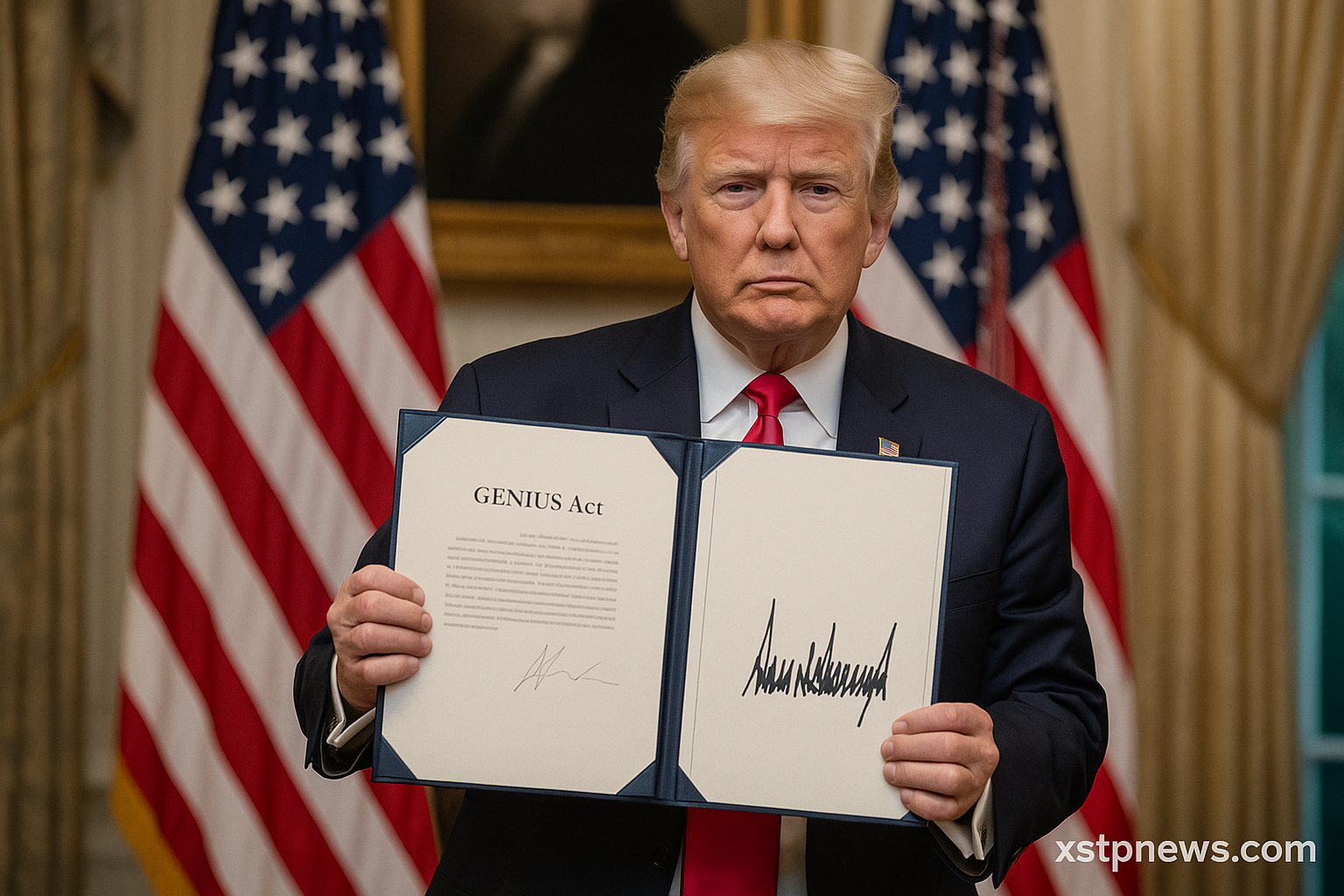President Donald Trump officially signed the GENIUS Act into law this Thursday, marking a decisive shift in U.S. policy toward stablecoins and the broader digital asset ecosystem.
Clarity and legitimacy for stablecoins
The act introduces strict reserve requirements, transparency rules and establishes federal oversight for stablecoin issuers. Trump described the legislation as a “monumental leap” for financial innovation, likening it to the internet boom of the 1990s.
At the White House ceremony, Trump was joined by high-profile supporters, including Senator Bill Hagerty, Speaker Mike Johnson, and executives from Coinbase, Tether and Circle.
A bipartisan win
The bill passed in the House by a margin of 308 to 122 and received broad support across party lines. It’s seen as the first coordinated federal attempt to define stablecoin policy and crypto infrastructure under one legal umbrella.
Parallel to this, the administration also announced initiatives targeting government overspending and transparency, including an order to release Jeffrey Epstein’s grand jury materials, signaling a politically strategic day for the White House.
Implications for tokenization and digital markets
With stablecoin operations now federally legitimized, analysts expect a surge in institutional adoption. By requiring 1:1 backing and real-time auditability, the law aims to foster trust in tokenized financial instruments, especially RWA (Real World Assets).
What it means for StartUpX and the XSTP token
The GENIUS Act is a direct signal that tokenized assets and compliant stablecoins are no longer fringe concepts. For StartUpX, this opens the door to align with a new regulatory framework that favors real-world asset tokenization, giving our ecosystem enhanced credibility with institutional partners and legal pathways for broader adoption of the XSTP token.
Sources White House Statement, Politico, Washington Post
Date July 18, 2025







